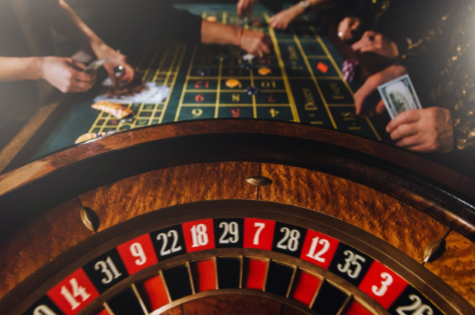
Because gambling has such a long and complex history, no one knows when or where it originated. As far back as history may be traced, ancient gambling games such as roulette originated in Asia.
This started around the year 2300 BC, but China is the first place to record this behavior. This is something that several different studies have proven: gambling has been widely believed to have existed since ancient times.
As gambling began to emerge, many games had evolved to depend on other methods. Discover how the changes in gambling practices affect the gambling world in this article.
Earliest Evidence of Gambling
Historically, the Chinese had employed tiles as a gambling game that depended primarily on chance during the third millennium BC. Subsequently, the Greeks utilized dice to pass their free time. Nonetheless, Greek gambling had been illegal even back then.
As part of their spiritual belief system, Native Americans created games of chance and used dice made from plum stones.
Even after the Europeans had come to North America, the Native Americans were still using dice to win items and belongings from one another. They also used dice to foresee the future of other individuals.
Evidence unearthed from many different parts of the world shows that the practice of gambling was prevalent among our ancestors.
Cards in the Ancient Times
We’ve already discussed China’s place in the history of gambling. However, before introducing online casinos and betting bonus codes, there is a history of a game called “white pigeon ticket” going back over 2,000 years, much longer than the lifespan of modern online casinos.
Additionally, some historians believe that games like card-playing, referred to as “relics of ancient China,” were initially invented in China. Originally, these cards depicted human figures, but Europeans began adding Queens and Kings to the illustrations as the games spread.
First Slot Machine
Slot machines are among the earliest forms of gambling, dating from the late nineteenth century. The firm based in New York, Sittman and Pitt, developed the first slot machine in 1891. Five drums held an amount of fifty playing cards altogether.
It was a popular machine and possibly found in various bars, with the cost of a single nickel. Players would drop money into the slot, turn the handle, and then pull the switch to begin playing. Cash prizes were given to players who correctly placed cards atop the reels.
The machine was emptied of two cards, raising the house edge. Doubling the chances of obtaining a royal flush made this hand less likely. The machine does not provide a direct payout feature to make a winner, so money was handed out at the bar.
Instead of cash prizes, non-monetary prizes such as free liquors and cigarettes were awarded. Up to this day, slot machines are widely known. If you want to win exciting and big prizes, you can now choose to play at high volatility slots online.
Internet Gambling
A researcher claims that the first-ever online casino was founded in 1994, but the record on the Internet does not appear to exist.
However, the current industry data does show that Microgaming, a casino software development company in the online gambling industry, was a co-developer on the launch of the first-ever online gambling site alongside Cryptologic.
Online gambling has seen another significant development in the last two decades after the Kahnawake Gaming Commission was established in 1996.
Established to issue gaming licenses, the commission is currently owned and operated by a Mohawk Indian tribe based in Canada.
This initial gambling industry birth led to the online gambling industry experiencing massive growth. Between the end of 1996 and 1997, the number of online gambling sites increased to about 15.
Besides, by 1997, the online gambling industry had seen significant growth and had already brought in nearly $1 billion in annual revenue.
Mobile Gambling
Since 2005, when a game developer designed mobile-based casino software, mobile gaming roots were established. Innovation was synonymous with the significant increase in the number of smartphones being used around the world.
The system’s compatibility with popular games like bingo, poker, and slots was established during the initial design development. Up to this day, more countries legalize mobile gambling.
The rise of the pandemic in 2020 brings a massive spike in online gambling. Online gambling is beneficial to people because it doesn’t require them to go to a traditional casino.
Conclusion
Gaming has changed since it was discovered, and it continues to be an essential part of our society today. While gambling has seen a significant rise in popularity in the modern age, everyone is still strongly encouraged to follow responsible gambling practices. This article was written by Ella Houghton. Click here to view her profile.







